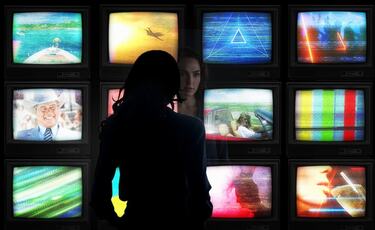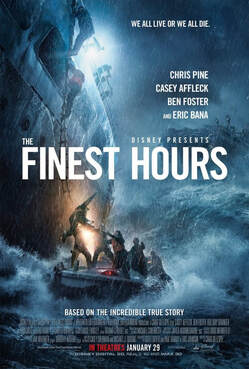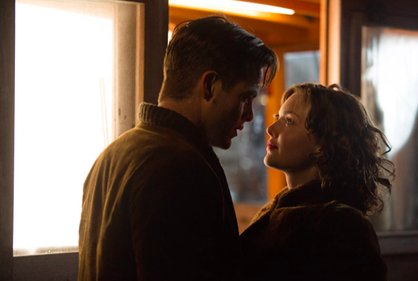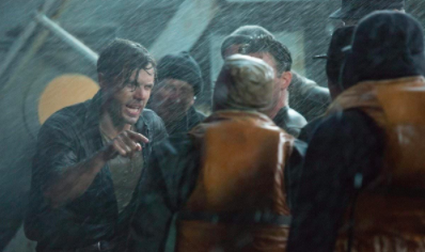
Please note: The following text contains spoilers. Viewer discretion is also advised – Wonder Woman 1984 is rated ‘12’. For more details on the film’s content from a Christian perspective, read Focus on The Family’s review from Plugged In:
https://www.pluggedin.com/movie-reviews/wonder-woman-1984-2020/
Delayed multiple times due to the Coronavirus pandemic, and largely dismissed by critics upon its eventual release on streaming, Wonder Woman 1984 seemed doomed to ever grace my television set from the off. And yet, I was consistently drawn to it – due in part to the film’s neon-soaked aesthetic, and the promise of being able to see which evil foe would dare to face off against Diana Prince (AKA Wonder Woman), following her electrifying battle with Ares, the fearsome god of war. My key reasoning, however, was this: Without exaggeration, Wonder Woman (2017) is one of the most strikingly virtuous and borderline spiritually conscious Hollywood offerings in recent memory. It encapsulates beautifully and movingly, the biblical ideal that whilst humanity isn’t deserving of salvation (due to its fallen nature and consistent desire to itself apart) it is worth fighting for and saving – even to the point of great sacrifice. For example, when Ares notes that humanity is completely deserving of their destruction because of their sin, Diana responds by noting that they’re “capable of so much more” and chooses to have mercy upon them. The Gospel, anyone!?
Naturally then, I was intrigued to see if the sequel would further explore similar thematic concerns. And indeed, it does – after all, I’m writing this piece, aren’t I? Set in the burgeoning age of infomercials, workout fads and highly impractical clothing such as parachute pants, we see the focus of Patty Jenkins’ follow-up shift from ruminations upon human worth, to questions surrounding one’s understanding of truth, it’s importance as a bedrock for human existence and the dangers of undermining/neglecting it in favour of self-gratification. If that all sounds a little heavy for some popcorn entertainment, you’d be forgiven. But the impressively choreographed set pieces we’ve come to expect from such tent-pole filmmaking are present and correct – and often infused with those thoughtful ruminations, which include the idea that one can and should only live a life founded on truth, which is wholly sufficient for all. Or is it? For within the plot of Wonder Woman 1984, truth and the acceptance of reality is questioned, when a conniving, desperate businessman named Maxwell Lord (Pedro Pascal) steals an ancient artifact called the Dreamstone from the Smithsonian Institution. Having learnt that it mysteriously grants its holder one wish, Maxwell sets about wishing to become the Dreamstone itself and becoming the world’s richest person overnight. He encourages people to “want it all” through the power of the Dreamstone.
Unbeknownst to Maxwell, however, the Dreamstone was created by the Duke of Deception – a mischievous god who grants users their wishes but takes something from them in return. The trio of Maxwell, Diana & Barbara Minerva (a co-worker of Diana’s) all use the stone to fulfil their heart’s desires, but soon find that the cost involved is far greater than they could have ever imagined: Maxwell falls ill, Diana loses her powers and Barbara’s humanity is no longer. With the world on the brink of collapse due to everybody seeking after selfishness and greed, Diana must decide: choose the truth of reality (albeit an occasionally painful one, but ultimately beautiful), or live in a fantasy that will only bring pain to others…
Having fallen prey to temptation caused by the Dreamstone and Maxwell’s influence, Diana wishes that she could be reunited with her one true love, Steve Trevor (Chris Pine), who gave his life to save others in the original film. Her wish is granted, but it contributes to the wider instability within the world because of all the rampant selfishness & greed, and strips her of her powers. Realising that she’s made a severe judgement of error, Diana admits that she has been deceived, thereby exchanging the truth of her existence and who she is, for an attractive, but ultimately hollow lie. Maxwell, fully aware of the evil contained within the Dreamstone, is then revealed as a deceiver, knowing full well that use of the Dreamstone will only ever bring destruction upon its users. Maxwell’s behaviour then, is noticeably consistent with the devil’s, who Jesus said is “the father of lies” (John 8:44, NLT). Much like Satan, Maxwell masquerades as someone who wants to help the disadvantaged and desperate, like seeking to “disguise himself to look like an angel of light” (2 Corinthians 11:14, GNT) to make his speech and actions seem truthful. But sooner or later, Maxwell is reduced to a blubbering mess, and those around him quickly learn that his appearance is false.
Diana’s experiences with Maxwell call to mind for her the teachings of her aunt and mentor, Antiope, who taught her that the “truth is all there is” and “no hero is born from lies”. In a moment of clarity, Diana then realises that living in reality and thereby standing firm upon what she knows to be good and right, is to experience truth. Whilst she is unable to receive every desire of her heart (like so many others), she sees the great beauty and wonders on display in our world that are far better for us to long after and enjoy, rather than the destructiveness of selfishness and greed. In a sense, the film’s worldview isn’t entirely wrong. However, it’s understanding of truth is limited. For whilst the filmmakers appear to believe that the truths of this world are the bedrock upon which someone should build their life, how can we distinguish the truth from the lies? How do we know what is absolute truth that we are able to depend upon?
God, in His word the Bible, teaches that for all the perceived truths of this life, there is but one unmistakable, pure truth that we can (in a sense) put to the test: Jesus. Whilst others are called into question or disputed, He taught that “I am the way, the truth, and the life; no one goes to the Father except by me|” (John 14:6, GNT). By this he meant that He is absolute truth within whom we can put our trust today and for eternity. Yes, some may not believe in Jesus and declare that He is a work of fiction. But He clearly said that if anyone comes to repentance, begins a personal friendship with Him and follows His teachings, “you will know the truth, and the truth will set you free.” (John 8:32, NLT). We will be able to experience Him today! Yes, Jesus is truth personified – the One who is uniquely able to help us experience a hopeful reality with Him, both now and forever, because He sacrificed himself on the Cross in the place of humanity. He made a way to save those whose lives were tainted by sin! And although He perished physically, He did not die spiritually and neither did His truth – for He rose again 3 days later to many witnesses, having defeated, and disarmed the power of death over our lives when He took it to the grave. In doing so, Jesus proved that He is truth and continues to do that today, when He beckons us to repent and thereby leave our sin behind us and come and follow Him – to experience His dependable Holy Spirit, love, joy, hope and peace. For those who love Him, “this truth gives them confidence (like no other) that they have eternal life, which God — who does not lie — promised them before the world began.” (Titus 1:2, NLT). Therefore, we need not look to the truths of this world, but to the One who wants you to know Him personally, today.
Challenge:
Why not prayerfully invite a friend or family member who doesn’t yet know Jesus, to watch Wonder Woman 1984 for themselves? Use the film’s themes to ask them what they thought of the film, if they spotted any links to Christianity and what they might think of the Gospel’s response to this subject.
If you feel able to, ask them if they believe there is such a thing as absolute truth in today’s world – if they answer yes, how do they know that? Ask them to consider whether Jesus is could be classed as dependable truth in the everyday – regardless of their answer, ask them why they feel that way.
Take the opportunity to share the hope of the Gospel message with them, encouraging them in the knowledge that whilst there are lies in today’s world and we often find it difficult to distinguish truth from the lies, Jesus is truth that we can stand firmly upon in the everyday – in fact, He invites us to reach out to find Him and experience His saving power for ourselves today! So, why not invite them to turn from their sin, put their trust in Him and walk into dependable friendship with Him, today?
Prior to watching the film for yourself, however, take a moment to pray that God would speak to you through the show. If you feel comfortable, pray this prayer over all your future, film-watching experiences:
Dear Lord, as I watch this film, I ask that you would be present here with me. Highlight to me anything within it that is honourable, anything that can be used in conversation for your Kingdom purposes. Amen.
Wonder Woman 1984 is currently available to rent on all good streaming services.






 RSS Feed
RSS Feed